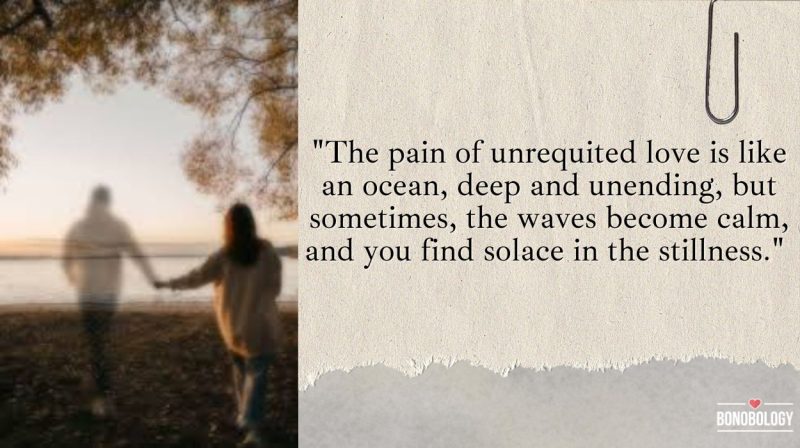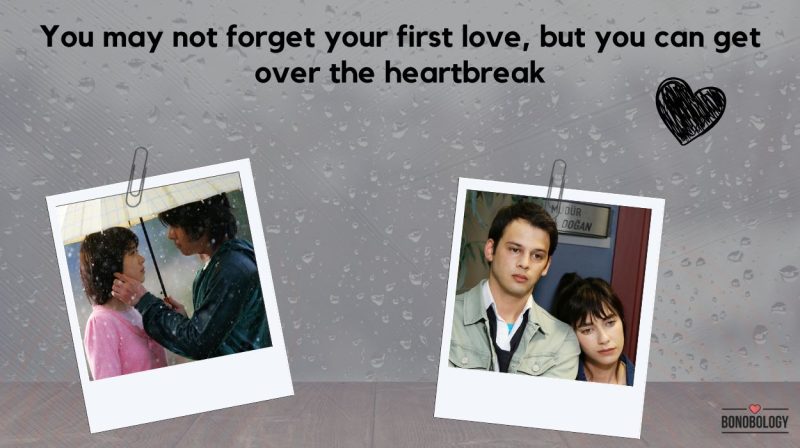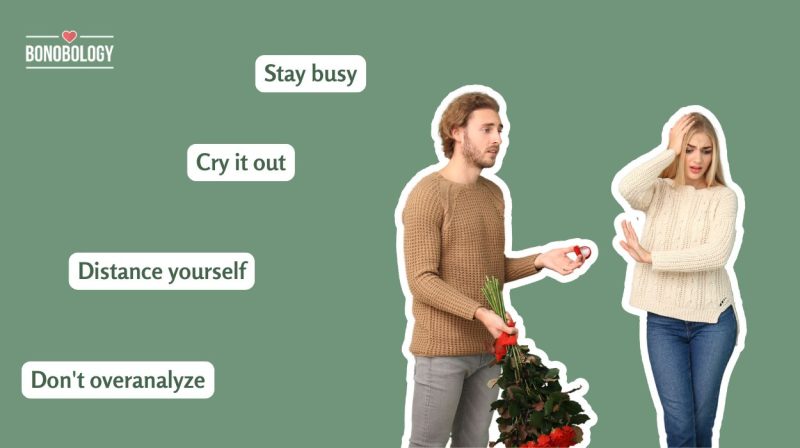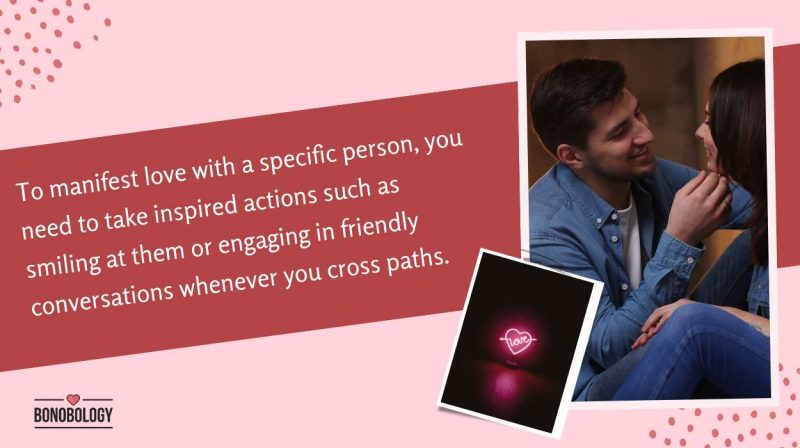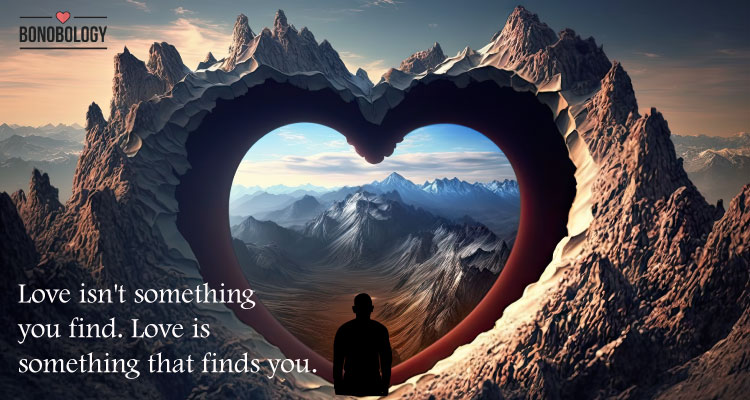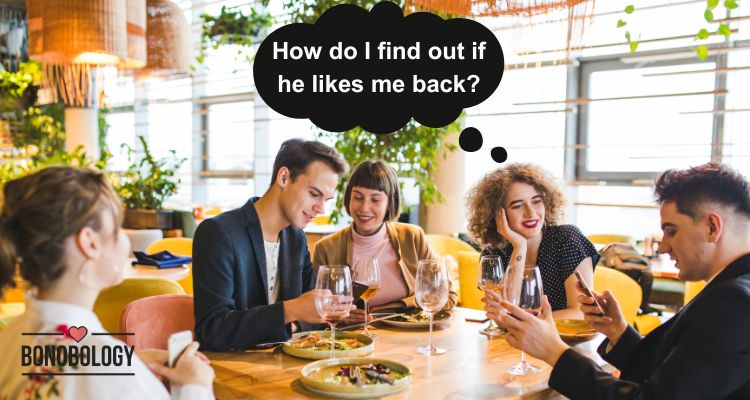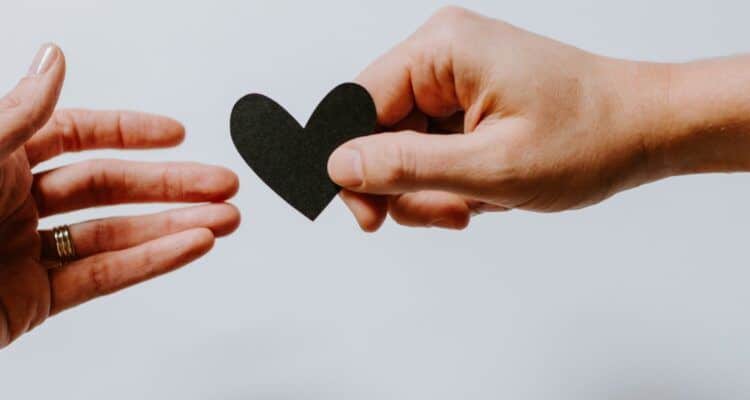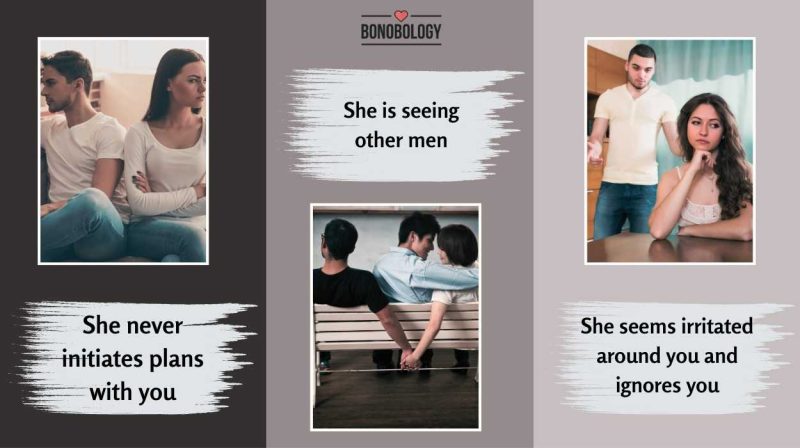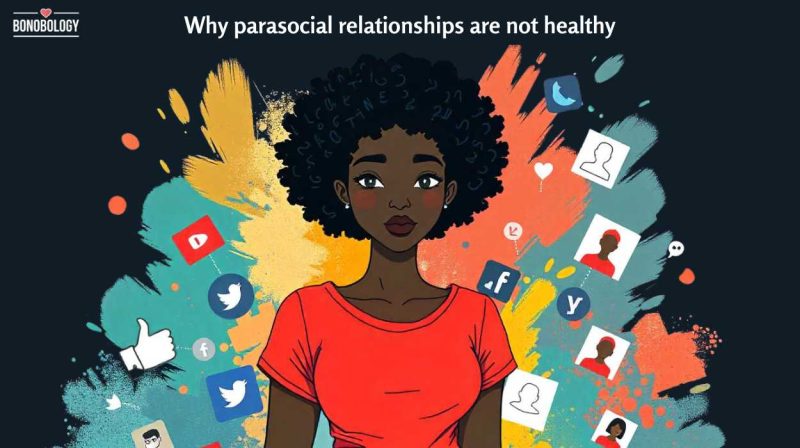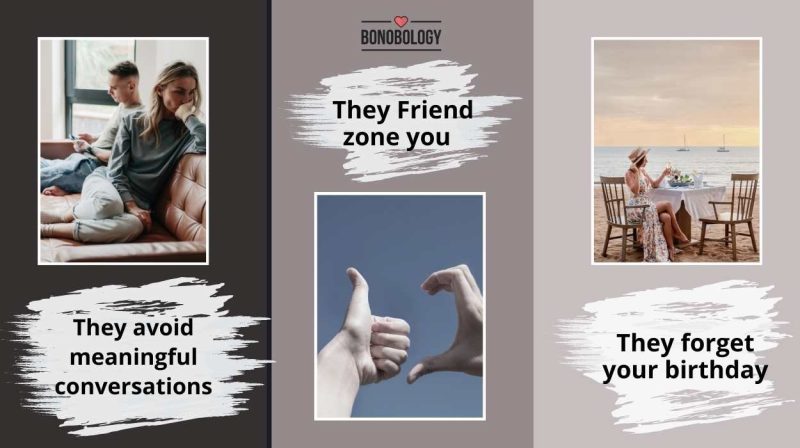Gunther and Rachel, you and that English professor, Donald Trump and China, we’ve all seen cases of one-sided relationships all around us. While it’s all fun and games when it’s happening on TV, when something similar goes down in your own life, you might actually end up turning a blind eye to the glaring signs.
After all, why would you want to confront the signs? Acknowledging the fact that you may be in a one-sided relationship is a revelation all of us would put off wanting to discover or acknowledge. No thanks, I’ll stay in my toxic dynamic for another week before I think about it!
But when it all gets too much and it becomes painfully obvious that you are deeply emotionally invested in someone who doesn’t feel the same way about you, you need to face the elephant in the room and stop turning a blind eye to the one-sided relationship signs in your dynamic. To help you face this uncomfortable truth, in this article, we explore the one-sided relationship psychology, causes, signs, and discuss the way forward, in consultation with Dr. Aman Bhonsle (Ph.D., PGDTA), who specializes in relationship counseling and Rational Emotive Behavior Therapy.
What Is A One-Sided Relationship?
Table of Contents
Imagine you see the world’s cutest dog. You’re completely bowled over by how adorable this pooch is and you decide to call him/her over to you. If the dog looks at you through the corner of its eyes and doesn’t move a muscle despite your calls, that’s pretty much what a one-sided relationship is.
Jokes aside, a relationship such as this usually features an inconsistency of feelings amongst partners, a mismatch of expectations, effort, and love. In a healthy dynamic, each partner knows where they stand, what the expectations are and, most importantly, they feel validated.
A one-sided relationship, on the other hand, is one where one partner doesn’t feel the same same way about the other. They may have varying levels of affection, they might not agree on future goals, and there’s a lack of balance. One partner invests more time, energy, resources, and emotion in the bond than the other partner does, resulting in a clear lack of effort in a relationship from one side.
Related Reading: What Does True Love In A Relationship Look Like?
What Causes One-Sided Relationships—5 Key Factors
On the surface, this sounds horrible, right? It may even lead you to wonder, why would anybody ever willingly want to be a part of such a dynamic? Dr. Bhonsle explains that often denial or a person’s own underlying emotional and psychological issues may keep them hooked to such a connection. For better insight, let’s dig deeper into what causes one-sided relationships:
1. Self-doubt and insecurity

“The biggest reasons behind such dynamics are self-doubt and a host of different types of insecurities,” says Dr. Bhonsle. “They may not believe that someone would ever want them, and what they have is the best they can get. The whole ‘something is better than nothing’ logic. Self-doubt makes people believe that this is the only thing they’ll ever have and nothing else will come their way.”
2. An overwhelming need to be liked
“A one-sided relationship is caused by the same thing that causes hunger when you’re not fed; need. When you’re not satiating your appetite for affection and attention, you’ll end up being a part of a relationship where you feel a clear lack of effort and reciprocity from your partner,” explains Dr. Bhonsle. With the hope of getting some emotional gratification from the relationship, you might’ve allowed yourself to jump into a dynamic you knew would never feature care and love.
Related Reading: How Do I Move On From One-Sided Love? Our Expert Tells You
3. Situational factors may be to blame as well
If your bond is currently healthy with an equal reciprocation of love, it doesn’t mean there won’t come a stage when you start feeling like you’re the only one in the relationship. Perhaps you need to travel for work, or your partner needs to be closer to their family in case someone falls ill. When factors you cannot control come into play, you may end up experiencing something akin to a mismatch of emotions.
4. Growing differently
“When your goals become larger than the affection you once shared for each other, it’s hard to sustain a healthy dynamic. What was once sustainable through visits to Starbucks and a few fancy meals, will now be fading away,” explains Dr. Bhonsle.
“Perhaps your temperaments evolve in different ways, and maybe the little quirks you used to accommodate in the beginning are now becoming insufferable relationship deal breakers. These so-called pressures of life can end up becoming a pressing force. You’re never meant to be alone in your relationship. It is always supposed to be a shared venture.”
One-sided relationship psychology tells us that it’s something that can happen over time as well. You might’ve initially let it slide when your partner would constantly interrupt you, but over time, it might end up making you avoid their calls and try to find a little more “personal space” than what’s warranted.
5. Different expectations
Once the expectations start to differ, you may start feeling neglected
The lack of labels can end up leading to very different expectations a couple may have of each other. Even if there’s an agreed-upon label involved, managing expectations isn’t always the easiest thing. When you’re not on the same page about what being together means to the both of you, you can end up being in a one-sided relationship.
13 Signs Of One-sided Relationships
Human beings love to live in denial. Why would you want to face the bitter truth when you can gaslight yourself into believing nothing’s wrong? But then again, if you truly believed nothing was wrong, you wouldn’t be here reading this article. If you have been dealing with a niggling feeling that there’s some sort of imbalance in your equation with your partner, let’s help you get some clarity by exploring the telltale signs of a one-sided relationship:
Related Reading: 9 Signs Of Bad Communication In A Relationship
1. Poor communication
Are there a few things in your dynamic you actively avoid talking about, fearing it would bring about the nastiest fight? Maybe your partner doesn’t even try to initiate as many conversations as you. While you may be trying to solve the issues the relationship has through effective communication, your partner might just walk away instead, saying they don’t want to have this conversation right now. If you’re the one making all the effort to get through to your partner and keep the connection alive and your partner doesn’t even reciprocate with the bare minimum, it’s one of the clearest red flags of a one-sided relationship.
2. Are you bending over backwards for your partner?
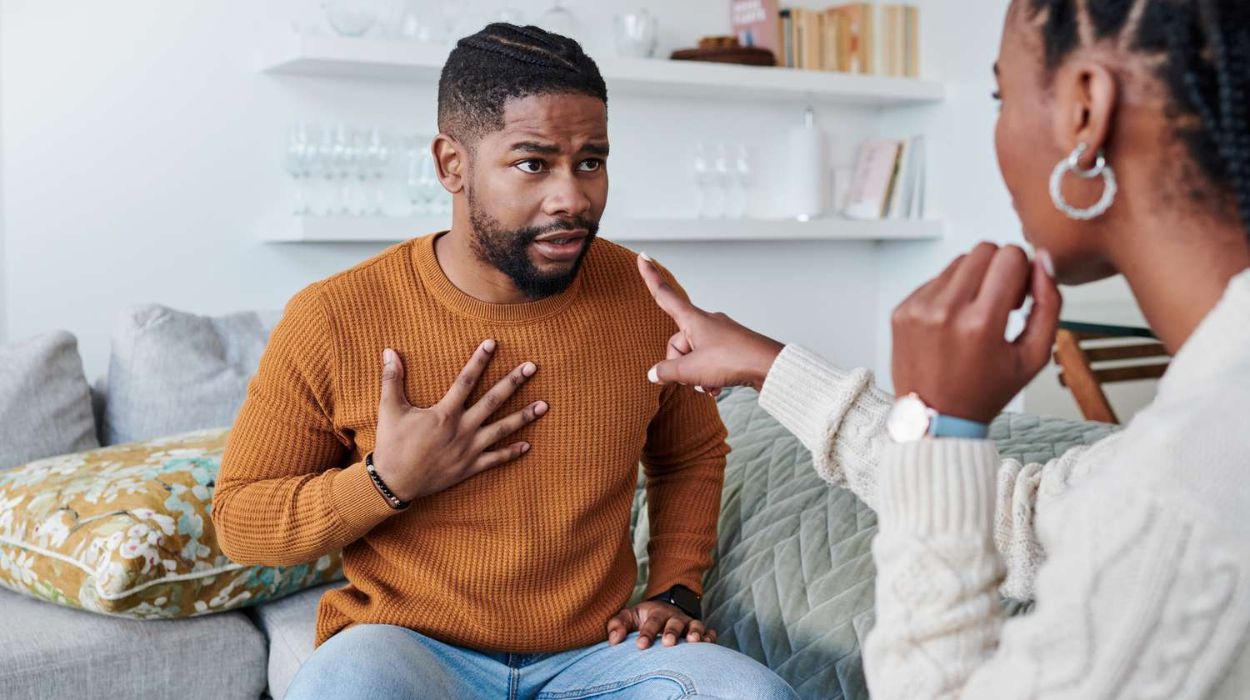
When asked about one of the most glaring red flags of a one-sided relationship, Dr. Bhonsle picked not being a priority for one’s partner. “You become a butler to your partner; you’re a component of their life and not someone with an indelible influence on it. You may be putting your partner above your schedule, your profession, your social life, and even family responsibilities but they don’t reciprocate the same way. Instead, they make time and space for you only when it’s convenient for them,” he explains.
3. No reciprocation of effort
A lack of effort in a relationship from one partner’s end screams that the connection is lop-sided. While you’re out there trying to make sure your partner’s laundry is clean and ironed for their upcoming meeting, you’re pretty much used to them never helping you with anything when the need may arise. Granted, the effort you put in may not necessarily be so butler-esque, but you get the gist.
You might not see your partner put in the effort to support you, to help you financially, or to simply just be there for you, prioritizing their own space over your issues. With that being said, Dr. Bhonsle warns us that measuring “effort” in a relationship is usually highly subjective and should be done with consideration.
“It’s very hard to measure effort. Some may put in more psychological effort than others, which isn’t really measurable. In most cases, it has to be tangible, ask questions like:
- Has my partner made my life more pleasant and enjoyable?
- Have they made me more comfortable?
- Have they made me physically and emotionally healthier?
- Have they helped me financially when I needed it?
- Is ours a healthy relationship?
“It’s a give and take, a balance that you need to strike. You may end up feeling like you didn’t get anything in return, but you need to figure out whether you put in a tangible effort or not,” says Dr. Bhonsle.
Related Reading: 9 Examples Of Mutual Respect In A Relationship
4. There’s a lack of mutual respect
Does your partner shrug off your opinion like a patch of dirt? Do they interrupt you while you talk, and a conversation with them feels like it’s just them waiting so they can start talking again? These behaviors may seem insignificant but they often stem from a lack of respect. When your partner doesn’t respect you, it’s usually one of the signs you mean nothing to him/her because it leads to you becoming progressively irrelevant to their actions, behaviors, and choices.
“When a person doesn’t respect their partner, they might think, ‘To hell with what my partner needs, my wants are more important’,” says Dr. Bhonsle. “Your needs may end up being deemed as not germane to the relationship, since your partner believes theirs are more pronounced and prominent. As a result, it’s possible a lack of respect may ensue.”
5. You constantly worry that the relationship may end soon
Love is supposed to make you feel secure, but one-sided love has exactly the opposite effect. If a text message like “Listen” from your partner has you fearing the worst, panicking until their next message hits your screen, and you’re always worried your partner is about to break up with you, it shows how fragile your relationship really is.
Constantly having to live with this feeling of impending doom is one of the biggest one-sided relationship signs. “It’s like the sword of Damocles,” says Dr. Bhonsle. “When the king saw that there’s a sword hanging above his head, he stopped enjoying life.”

6. A one-sided relationship may leave you more insecure
As we saw, insecurity is one of the biggest reasons why people get into and stay trapped in one-sided relationships. The trouble is the longer you stay, the worse your insecurities get, setting into motion a vicious cycle that chips away at your sense of self. You may often think to yourself, “I feel like I give more than I receive in my relationship”, but you’re not able to ask for what you need or muster the courage to walk away because the more your needs are neglected, the more you end up questioning your self-worth, to a point that your insecurities and low self-esteem may lead you to believe that this is what you deserve.
“When the effort constantly comes from you, it can definitely breed insecurities and a lot of misery,” says Dr. Bhonsle, “You end up believing this is the best love and dignity you can get, which leads to multiple issues with insecurities.”
7. One-sided love drains you emotionally
A relationship inevitably goes through its share of ups and downs, but when you’re part of a balanced, wholesome partnership, despite all the challenges, being with your significant other nurtures you emotionally. If that hasn’t been your experience and instead investing more and more of yourself in a relationship where you get next to nothing in return leaves you feeling emotionally drained, it’s one of the signs that you are alone in a relationship.
If you’re feeling like you’re the only one in a relationship, you’re naturally going to try and do all you can to make it feel more authentic. When all the gifts, phone calls (that you initiate), and favors end up overwhelming you, you’ll be left feeling fatigued as a result.
8. There’s an acute lack of labels
A lack of labels or clarity on where you stand with your partner is also among the red flags of a one-sided relationship because it allows your partner to take you for granted. Perhaps you’re hoping for an exclusive relationship while your partner is avoiding this conversation because they want to “go with the flow”.
Dr. Bhonsle tells us the importance of establishing labels early on. “Signs of a one-sided relationship cannot be generalized. You have to investigate if it’s even a relationship in the first place. What I’ve seen happen is that two people may be talking for a year, but when you ask them what they are, they say, ‘Oh no, we haven’t really set a label to it yet’.”
“Sending ‘I miss you’ texts and emoji kisses to a partner every night doesn’t equate to a relationship. If you don’t label your salt and sugar, you’ll end up with salty tea and a sweet meatloaf. The same is true for a lack of labels in relationships as well—it messes things up. Through clear communication, it’s important to know what you are to each other.”
9. You don’t talk about the future
A “we’ll cross that bridge when we get to it” attitude doesn’t bode well for a romantic relationship, not if you want it to grow into something serious and meaningful anyway. To solidify a relationship and work toward a shared future, you need to discuss your future goals, what you both want, and how you expect your life to pan out.
When one partner isn’t as invested in the relationship as the other, they won’t really be thinking much about the future. If “Where do you see us in the next 5 years?” has your partner suddenly experiencing network problems, it’s one of the signs you mean nothing to him/her.
10. Your partner thinks there’s nothing wrong

Just like every prisoner in the movie Shawshank Redemption, your partner believes he/she is innocent of all crimes. Of course, you’re Red (Morgan Freeman), the only guilty man there. When you confront them about them not caring enough, you might be hit with a gaslighting bomb like, “You’re crazy, that’s not true. You need to manage your expectations better.”
Your partner will make you believe you’re crazy for even thinking they might not be as invested as you are or expecting the bare minimum from them. This is one of the certain yet hard-to-identify signs that you are alone in a relationship and are giving too much of yourself to someone who doesn’t love and value you the way you deserve to be.
Related Reading: 5 Relationship Issues That Lead To A Failed Romance
11. You’re always the one making amends
After a big fight, who initiates reconciliation? If you realize you’re always the one who tries to make things right, maybe your partner values the time off a little more than you’d want them to. But if you’re trying to reconcile thirty-five minutes after the fight without even giving your partner room to breathe, this example doesn’t really apply to you. Even so, think about whether you’re always the one apologizing and trying to fix the issues, or if you’re always on damage control duty. If so, it’s a classic case of one-sided love.
12. Your partner doesn’t care much
Did you make a scrapbook filled with pictures of the two of you, every movie ticket you’ve ever purchased, and all the memories you cherish for their anniversary? And did they get you a sweater in return? Perhaps you told them about an important upcoming meeting at work and they seemed to have forgotten about it 2 days later. Or maybe don’t know for sure when your birthday is. Or even though you have been together for a while, they don’t know your number by heart.
While you may want to dismiss these actions as “not a big deal” because you’re so hopelessly smitten, you have to admit every time something of this sort happens, it stings. That’s because your partner’s actions are telling you they don’t care too much about you. The way they go on neglecting you and the things that matter to you is among the biggest one-sided relationship signs.
Related Reading: Is Limerence Toxic Love? 7 Signs That Say So
13. There’s an overall dissatisfaction
Unless you’ve been skimming through the article so far, you’ve probably caught on to this. In a one-sided relationship, you don’t feel particularly over the moon about the connection you have with your partner. You very likely already know there’s something amiss and live with a constant sense of discontentment and disappointment. Yours isn’t at all like the all-smiles relationships you see on Instagram. Save the #couplegoals captions and the cute selfies for another partner, you’re not getting much out of this relationship.
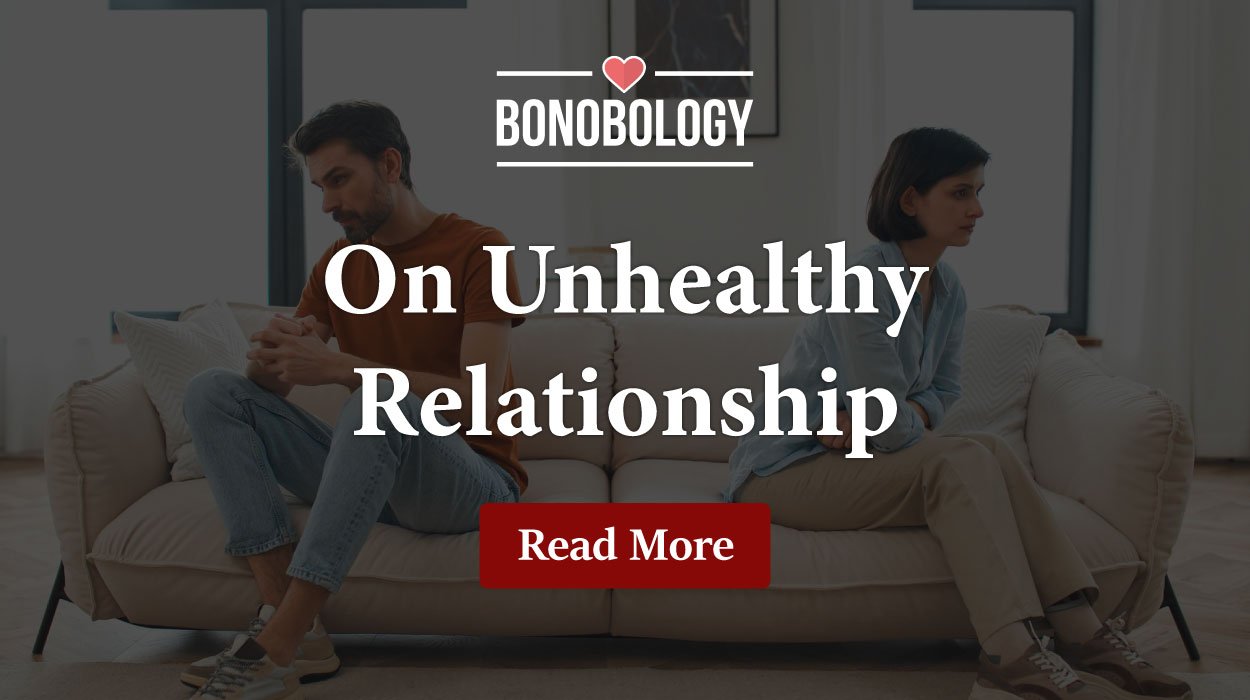
How To Know When It’s Time To Move On From A One-Sided Relationship
Even when the signs of being in a one-sided relationship become too apparent, people tend to hold on to the hope that if they try a little harder, give a little more, the other person will reciprocate their feelings. Sadly, more often than not, this hope is false and all it does is leave you emotionally wounded and chips away at your self-esteem.
Dr. Bhonsle reiterates, “In a one-sided relationship, unfulfilled promises and repeated disappointments can erode your self-worth and emotional well-being.” If you feel tired of trying and getting nothing in return, if the piling disappoints have left you heartbroken, and find yourself wondering when to end a relationship that feels entirely one-sided, here are some indicators that you need to cut your losses and move on:
- You’ve given multiple chances without seeing change: If your partner continues to make promises to improve but fails to follow through, it’s a clear indication that their words don’t align with their actions. Promise without change is manipulation, making it one of the most pressing signs to leave a relationship
- You’re dealing with unmet expectations: Consistently being let down by unfulfilled commitments can lead to frustration and resentment, which can start impacting your emotional well-being.
- You’re not getting the love and affection you need: Everyone deserves to feel valued and cherished. If your emotional needs are persistently neglected, it’s one of the signs to leave a relationship because it’s not serving you
- You feel more alone when you’re together than when you’re apart: Being in a relationship should add to your happiness, not detract from it. Feeling isolated in your partner’s presence is a red flag that is warning you to take a step back
- Your self-esteem has diminished since the relationship began: A healthy partnership should uplift and support you. If you find yourself doubting your worth or abilities, the imbalance in the relationship is distorting your sense of self and you need to walk away from it
How To Move On From A One-Sided Relationship
Once you figure out when to end a relationship, the next step is to decide how. When you have invested so much of yourself in a relationship, moving on can be challenging but it’s also crucial for your well-being. Dr. Bhonsle says, “The prospect of ending a relationship can be daunting, even if it’s one that’s not meeting your emotional needs. The key is to take it one step at a time, and keep the faith that you can walk away.” He lists seven simple steps that can make ending a one-sided relationship less overwhelming:
1. Acknowledge the imbalance

Dr Bhonsle says, “Recognize that the relationship lacks mutual effort and affection. Accepting this reality is the first step toward healing.” Here is how you can shake off the denial and accept the reality of your situation:
- Consider instances where you’ve felt undervalued or unsupported
- Keep reminding yourself of these experiences when you feel tempted to continue the relationship
- Write down your emotions to gain clarity about the reality of your relationship and process it
Related Reading: Loving From A Distance – How To Show Someone You Do
2. Communicate your feelings
Express your concerns to your partner and see how they respond. “Open communication can sometimes lead to mutual understanding, but if it doesn’t, it can reinforce your decision to move on,” says Dr. Bhonsle.
Yes, you may have done it several times in the past as well but this time pay attention to how they respond and don’t just take their words on face value. If they promise to change for the better, maybe give them another chance but make sure, this time it is the last and final chance you ever give them. If they fall back into their old patterns sooner or later, take it as your cue to end things.
3. Set boundaries
Establish clear boundaries to protect your emotional health and decide what behaviors you will no longer tolerate. This might mean limiting contact or avoiding situations where you feel taken advantage of. Communicate these boundaries to your partner to set clear expectations and don’t let them trample all over them. If they do, reiterate that their behavior is unacceptable and disengage from them.
Related Reading: 9 Proven Benefits Of Counseling—Don’t Suffer In Silence
4. Seek support
The relationship may have been one-sided but your feelings were real, and probably intense. As you grieve letting go of someone you loved deeply as well as the idea of “what could have been” had your partner loved you back the way you wanted them to, lean friends, family, or a therapist to navigate your emotions. Sharing your feelings can provide comfort and perspective.
5. Focus on self-care
To heal from this heartbreak and move forward, you need to prioritize activities that bring you joy and relaxation. “Engaging in self-care reinforces your self-worth and aids in healing,” says Dr. Bhonsle. You must,
- Rediscover activities you love or try new ones to boost your mood
- Try techniques like meditation or yoga can help center your thoughts and reduce stress
6. Reflect on lessons learned
Image
“Analyze the relationship to understand what you’ve learned about yourself and your needs. This reflection prepares you for healthier future relationships,” Dr. Bhonsle. When you look back at the relationship you had, pay attention to the behaviors that kept you stuck in an unfulfilling, lop-sided connection that had you thinking, “I feel like I give more than I receive in my relationship”, more often than not. Then, determine what you want in your next relationship to ensure it aligns with your values and needs.
7. Embrace the future
Let go of the idea that the person who didn’t reciprocate your feelings was your one true love. Instead, look forward to new opportunities and experiences and truly embrace them, without keeping alive the hope that the love you lost (or never had) will find its way to you. Ending one chapter opens the door to new, fulfilling relationships, and that’s what you need to focus on.
Key Pointers
- A one-sided relationship is marked by an imbalance in effort, emotions, and expectations, where one partner invests significantly more than the other. This leads to a lack of validation, emotional exhaustion, and unmet needs
- Factors like self-doubt, insecurity, a deep need for validation, and mismatched expectations often contribute to such imbalanced dynamics
- Indicators include poor communication, lack of reciprocation, feeling unimportant, emotional exhaustion, lack of mutual respect, fear of abandonment, absence of future planning, and the partner’s indifference toward the relationship
- If unfulfilled promises, unmet expectations, emotional neglect, loneliness, and diminished self-worth persist, it may be time to walk away
- Moving on involves self-reflection, setting boundaries, and prioritizing self-care
Final Thoughts
So, there you have it. Everything you’d ever need to know about a one-sided relationship. How it happens, whether you’re in one or not, and what you need to do. Hopefully, you now know what you need to do and won’t end up believing it when your partner goes, “Of course I care!”
If you’re currently struggling with a one-sided relationship or any other mental health issue, Bonobology has a multitude of experienced counselors who’d love to help you get through these trying times, including Dr. Bhonsle himself.
Your contribution does not constitute a charitable donation. It will allow Bonobology to continue bringing you new and up-to-date information in our pursuit of helping anyone in the world to learn how to do anything.

